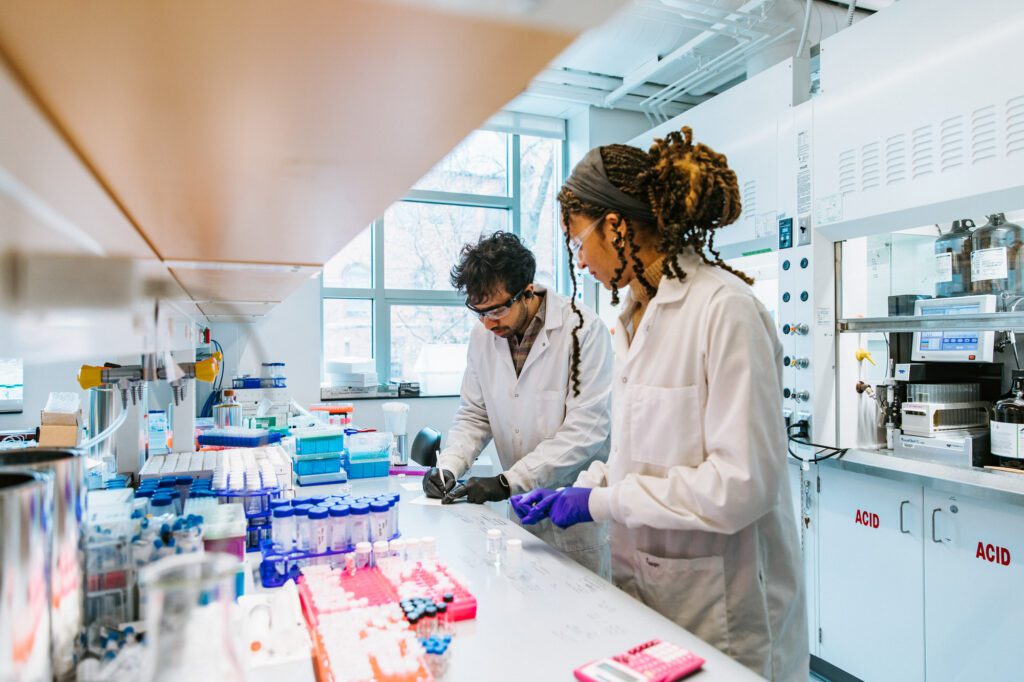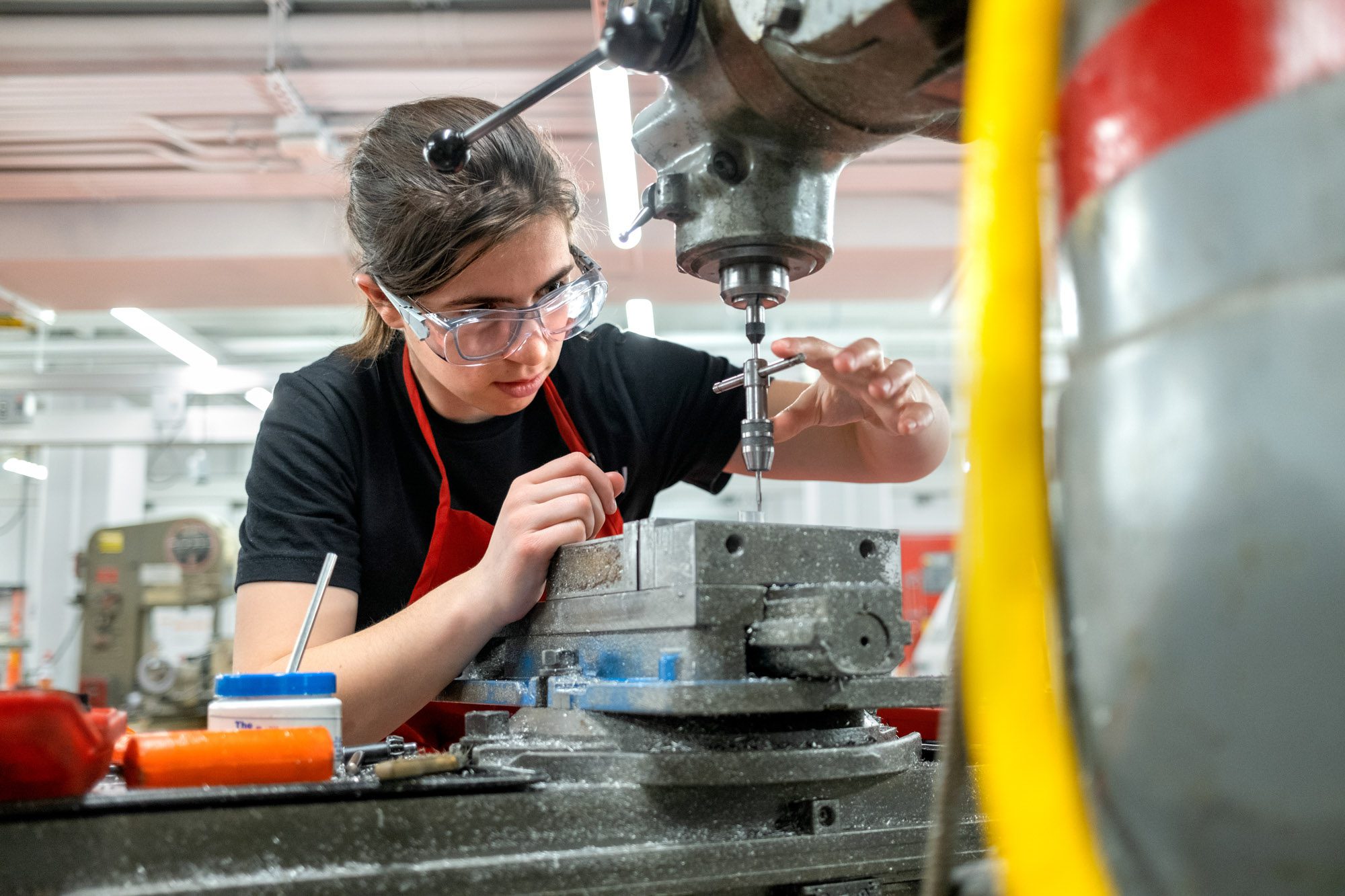Majors
There are 14 majors in Cornell Engineering. Each major has its own set of core requirements that must be taken after completing the common curriculum, which is required of all engineering students. We invite you to browse your area of interest to learn more about each major and its required classes.
-
Biological Engineering
The biological revolution of this century has given rise to a growing demand for engineers who can tackle local, national, and global challenges by combining the power of engineering principles with the ever-evolving science of biology.
If you have a strong aptitude for math and the sciences and an interest in solving engineering problems that relate to living systems, biological engineering at Cornell is definitely worth investigating.
-
Biomedical Engineering
If you have an interest in solving engineering problems related to human health, consider the burgeoning field of biomedical engineering.
An integrated, interdisciplinary endeavor, biomedical engineering bridges the engineering and medical fields to meet the 21st-century needs of biomedical industries focused on medical devices and pharmaceuticals.
Biomedical engineers discover and apply engineering principles and methods to wide array of problems in medicine, including diagnosing the biological origins of disease and designing biocompatible and living materials, prostheses, surgical implants, artificial organs, controlled drug-delivery systems, and regenerative technologies to control/augment the healing process.
-
Chemical Engineering
As a chemical engineer, you will work with chemical change and chemical processing.
You might develop ways to produce chemicals or design, build, and operate a chemical production plant. You might search for new sources of energy, work to clean up the environment, or develop new materials such as polymers and ceramics.
Chemical engineers are involved in producing all kinds of goods, including plastics, textiles, and fertilizers, processed foods, and antibiotics.
Chemical engineers also work in new areas of biotechnology, including designing new methods to fight life-threatening diseases and more effective ways to deliver medications.
-
Civil Engineering
Civil engineers are innovators, creators, and entrepreneurs. They design and build buildings, bridges, dams, roller coasters, and even sound stages for rock bands.
They devise complex systems like transportation and water-supply networks, or information systems for design and management of engineering projects.
They also design water treatment and wastewater treatment systems and hazardous waste remediation projects that protect the environment.
-
Computer Science
As a computer science major, you will take courses covering algorithms, data structures, logic, programming languages, systems, and theory.
You will also choose from electives like artificial intelligence, computer graphics, computer vision, databases, and scientific computing.
Undergraduates also have the option of completing a minor in computer science.
-
Earth and Atmospheric Sciences
The earth sciences have never been more critical to society than today.
Global warming, dwindling energy resources, inadequate water supplies, political strife over strategic minerals, and mega disasters threatened by volcanic eruptions, earthquakes, tsunami, and hurricanes: these are but a few of the headlines that appear with increasing frequency.
The Department of Earth and Atmospheric Sciences at Cornell University is a global leader in research directed toward understanding the fundamental processes that have shaped our planet, and is committed to providing students with the earth literacy needed to serve as informed citizens and wise stewards of the Earth.
-
Electrical and Computer Engineering
Electrical and computer engineering is an exceptionally broad professional field.
The undergraduate program is structured to provide an optimal balance between fundamental theory and hands-on laboratory practice.
Consequently, modern laboratories with up-to-date equipment are maintained to support course work in digital and microprocessor systems, VLSI design, digital systems processing, quantum and optical electronics, electronic circuit design, feedback control, solid-state electronics, and electric power systems.
-
Engineering Physics
The engineering physics program is oriented towards students who want to solve both fundamental and applied technical problems.
If you are seeking a broad-based engineering education, this program will prepare you for a diversity of careers in a rapidly changing technical world.
Whether your interest is in basic research, biotechnology, computer and information sciences, microelectronics, nanotechnology, optical engineering, software development, or any burgeoning field of engineering that requires outstanding technical background, an engineering physics bachelor’s degree is your key to success.
-
Environmental Engineering
Environmental engineers serve people and preserve the environment.
They analyze land, water, air, and pollution problems as well as develop designs for pollution and hazardous-waste-control facilities.
They participate in city planning, develop water-resource systems, and design the operation of other systems fundamental to the quality of life and the preservation of the quality of the environment.
-
Independent Major
The independent major is a special opportunity for students whose educational objectives cannot be met by any of the regular majors. This option allows students to create a specially tailored, inter-disciplinary course of study
The program is developed by the student in consultation with faculty advisors and must be approved by the Independent Major Committee, which is responsible for supervising the student’s work.
Please note: Due to current enrollment and advising limitations, the independent major cannot accept any students with computer science as either their primary or secondary areas of study.
-
Information Science, Systems and Technology
Information science and technology studies the design, implementation, and management of complex information systems.
In addition to understanding the computing and communication technologies that underlie digital information systems, the program emphasizes information systems engineering in broad applications, where issues at the confluence of information science, technology, and increasingly rich interactions between information systems and their human audiences are the primary concerns.
-
Materials Science and Engineering
Materials science and engineering at Cornell prepares students to couple fundamental physics, chemistry, and biology with engineering to improve and invent novel materials that enable these advances.
Materials science at Cornell is a broad, multidisciplinary field devoted to understanding and manipulating the mechanical, chemical, electrical, magnetic, optical, and biological properties of materials.
The science side of the program investigates the basic mechanisms that give materials their properties.
The applications side explores ways to modify all types of materials, including metals, semiconductors, and plastics—and even ways to create new materials like nanoparticles—for improving performance metrics, such as speed, strength, compactness, and biocompatibility in engineered products.
-
Mechanical Engineering
The Sibley School of Mechanical and Aerospace Engineering offers an accredited undergraduate program in mechanical engineering.
This program is designed to provide a broad background in the fundamentals of this discipline as well as to offer an introduction to the many professional and technical areas with which mechanical engineers are concerned.
The program is appropriate for a wide range of career objectives, including supervised engineering practice, advanced professional engineering education, and other professorial education such as business, law, or medicine.
Two main areas of concentration are: mechanical systems and materials processing and engineering of fluids, energy and heat transfer systems.
-
Operations Research and Engineering
The operations research and engineering undergraduate degree program encompasses the data-driven decision-making tools and techniques that power the technology-driven economy.
You will develop skills in data science, optimization, machine learning and mathematical modeling.
Operations research majors learn how those skills are used in the sharing economy, in online market design, in transportation applications in companies like CitiBike and Uber, in e-Logistics in companies like Wayfair and Amazon, in healthcare and in a host of other settings.
Minors
Cornell Engineering offers 21 engineering-specific minors. In addition, Cornell Engineering students have access to any minor offered at the university.
- Aerospace Engineering
- Applied Mathematics
- Biological Engineering
- Biomedical Engineering
- Business for Engineering Students
- Civil Infrastructure
- Computer Science
- Earth and Atmospheric Science
- Electrical and Computer Engineering
- Entrepreneurship and Innovation
- Engineering Communications
- Engineering Management
- Environmental Engineering
- Game Design
- Information Science
- Materials Science and Engineering
- Mechanical Engineering
- Operations Research and Management Science
- Robotics
- Smart Cities
- Sustainable Energy Systems

